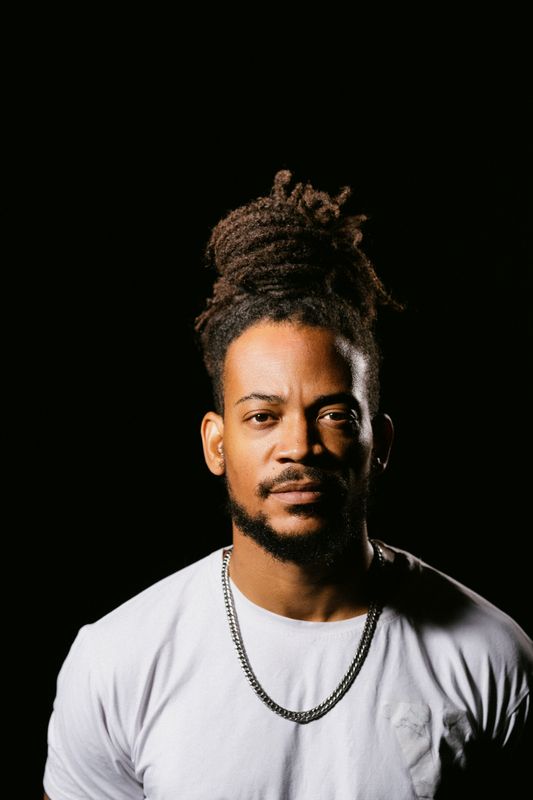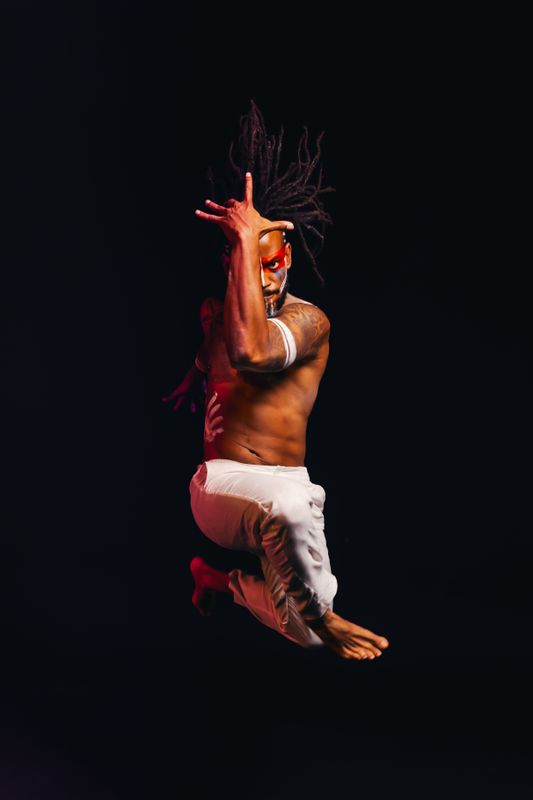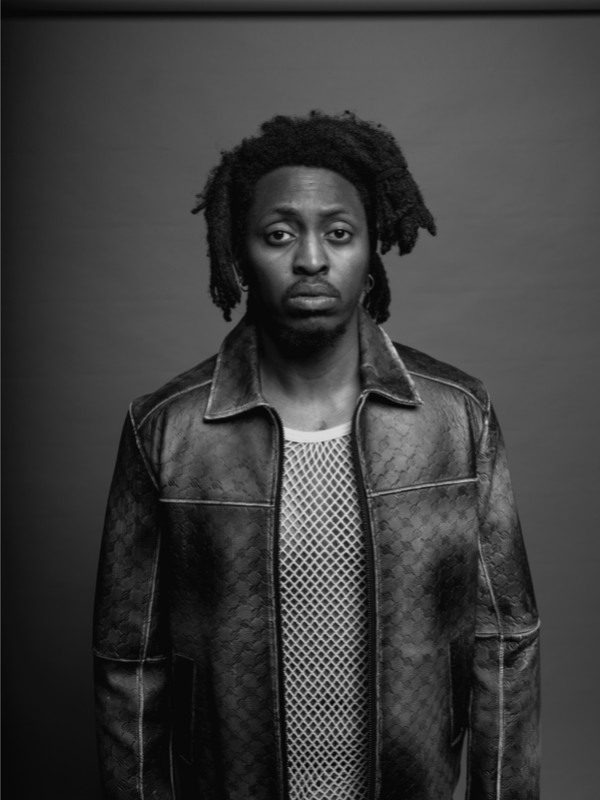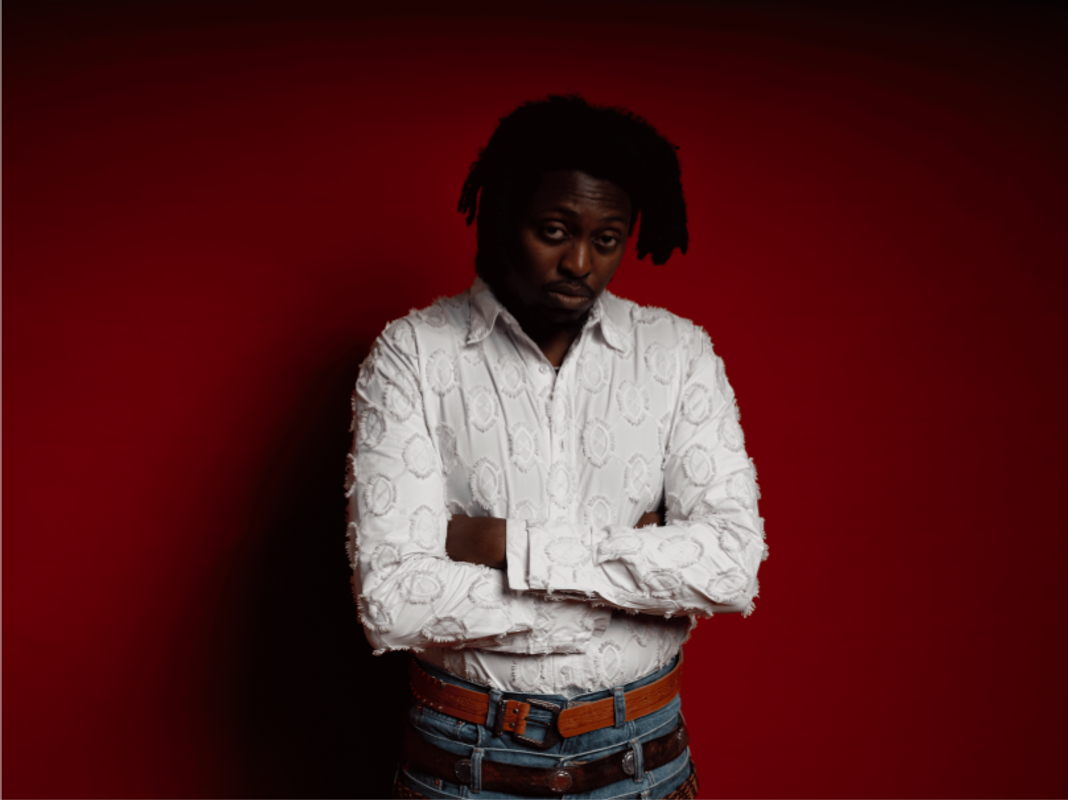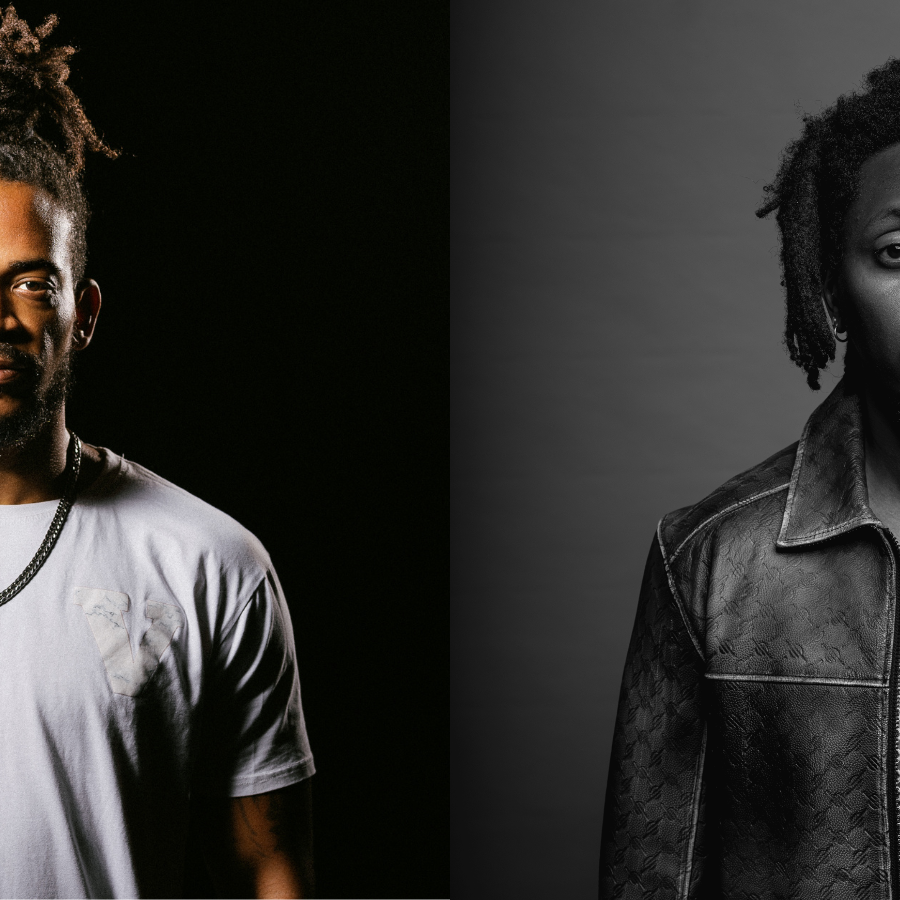
-
za 15 mrt20:00 - 21:00Theaterzaal
Den Mi Wesu (In My Bones) van Michael Wanga
Den Mi Wesu – “in mijn botten” in Papiaments – is een ‘deep dive’ in de origine van de spirituele beleving en hoe ritmische uitingen dat versterken. Een uitgraving van instrumenten, stem en beweging waarmee Michael zijn eigen wortels wil blootleggen. Ritme en spiritualiteit horen bij elkaar. Ze verbinden ons met de oerkracht in onszelf. Ritme wordt ons niet aangeleerd, maar doorgegeven vanuit de muzikale tradities van onze voorouders. Klank en beweging zijn de dragers van de geschiedenis in de Afro-Caribische cultuur. Ze bevatten de essentie van de spirituele ervaring die overal ter wereld wordt gedeeld, door meditatie, verering of gebeden.
Michael, geboren op Curaçao, is altijd verteld dat zijn familie van twee sterke stammen afkomstig is. Aan zijn vaders kant, de inheemse bevolking die heeft zien te overleven op de Caribische eilanden en aan zijn moeders kant, de bevrijde slaven die daar uit Afrika naartoe gebracht werden. Ondanks zijn Afrikaanse en inheemse roots, groeide Michael op met de invloed van West-Europese overtuigingen. Dit bracht hem in conflict met zichzelf, als hedendaags gevolg van het kolonialisme. Een culturele clash die tot uiting komt in muziek, van de gospel tot tambú.
Als deel van de nieuwe generatie afstammelingen van de afro-Caribische diaspora, is Michael Wanga op zoek naar de connectie met zijn voorouders. Een band die hij haalt uit ritme en spiritualiteit, waarvoor hij diep wil graven in de verhalen en geluiden die hem door generaties heen hebben gevormd.
Over Michael Wanga
Onder zijn artiestennaam Karpachii maakt Michael muziek met sterke akoestische, Caribische invloeden. Begonnen als b-boy op Curaçao trainde Michael jarenlang zijn explosiviteit en kracht. Door stappen in het theater te zetten, ondervond hij een andere, intuïtieve toepassing van zijn taal als performer. Hij gebruikt de spiritualiteit van zijn thuisland, om tot een nieuwe vertaling van zijn identiteit te komen - in ritme en beweging.
Click here for English translation
Den Mi Wesu – meaning “in my bones” in Papiamentu – is a theatrical deep dive into the origins of spiritual experience and how rhythmic expressions amplify it. It involves an excavation of instruments, voice, and movement through which Michael Wanga wants to uncover his own roots.
Rhythm and spirituality go hand in hand. They connect us to our most primal and instinctive selves. Rhythm is not taught, it is passed down through the musical traditions of our ancestors. Sound and movement are carriers of Afro-Caribbean culture, throughout generations. They contain the essence of a spiritual experience that is shared all over the world in meditation, worship or prayer.
Michael Wanga, born on Curaçao, has always been told that he is a descendant of two strong tribes. On his fathers side, the native people that have survived on the Caribbean islands and on his mothers side, the enslaved people that were brought there from Africa.
Despite his native and African roots, Michaels upbringing was influenced by West-European beliefs. This caused him to experience a religious conflict as a present-day consequence of colonialism. A cultural clash that translates through music, from gospel to tambú.
As part of the new generation of diaspora descendants, Michael seeks a connection with his ancestors. This bond is derived from rhythm and spirituality, which he wants to deeply explore through the stories and sounds that have shaped him.
About Michael Wanga
Known under his stage name Karpachii, Michael applies different musical genres and instruments in his artistic work. He started as a b-boy on Curaçao, where he develops his charismatic style. He is now finding a more intuitive approach into the theatre.
Negropont
Een voorstelling in Papiamentu en Engels.
Het is 2050. De spanningen tussen Curaçao en Nederland lopen hoog op - armoede en werkloosheid op het eiland zijn nog nooit zo hoog geweest. De tijdsgeest brengt bewegingen op gang op het eiland, die voor een nieuw collectief bewustzijn zorgen. Is het eiland klaar voor een nieuwe richting?
Het Papiamentstalige album Negropont is de sequel van Juny Martina's vorig project Destrukshon waarbij hij het verleden opnieuw verkende en de opstand van 30 mei 1969 vanuit zijn eigen perspectief op een creatieve manier omschreef. Zowel de gevoelens die onderling in de gemeenschap leefden, als alledaagse issues werden aangekaart. Zijn nieuwste werk, het immersieve album en concert ‘Negropont’, werpt juist een dystopische blik op de toekomst van Curaçao - maar wat moeten we doen om de transitie naar de nieuwe Yu Di Korsou in goede banen te leiden?
Negropont duikt diep in de complexe identiteit en toekomst van de 'Yu Di Kòrsou' en Juny weet zijn persoonlijke ervaringen in een creatief onderzoekend verhaal te verweven met culturele en politieke statements. Zo weet hij culturele genres zoals Seú, Tambú, en Müzik di Zumbi te mixen met HipHop om interessante post-genre muziek te maken - en tegelijkertijd vlijmscherpe lyrics die de urgentie aankaarten van de veranderingen die moeten plaatsvinden. Hiermee laat hij ook juist het mooie zien, van wat de Yu Di Korsou een Yu Di Korsou maakt.
Met het immersieve concert Negropont creëert Juny Martina een afro-futuristische wereld rondom zijn muziek, waarin hij samen met performers Osawe, Noëlgel, Sjenks en Redyson een unieke, hybride live-ervaring neerzet.
Over Juny Martina
Juny Martina’s kunstenaarschap is een fusie van lyrische, sociale kritiek, storytelling en cinematografische symboliek. Met een passie voor Papiamento-talige rap die verder gaat dan louter entertainment. In rap vond Jerry een belangrijke uitlaatklep; het spel met taal, metaforen en rijm daagde hem uit om de grenzen van zijn kunnen te verleggen, en invulling te geven aan zijn eigen identiteit.
De naam ‘Juny Martina’ brengt de meest voorkomende voor- en achternaam op Curaçao samen. Door de stem van de alledaagse Curacaoenaar te vertegenwoordigen dwingt de rapper zichzelf met het eiland verbonden te blijven, terwijl hij steeds meer onderdeel wordt van een nieuwe gemeenschap: die van Curaçaoënaars die in Nederland een leven hebben opgebouwd.
Click here for English translation
It's 2050. Tensions between Curaçao and the Netherlands are at an all-time high – poverty and unemployment on the island have never been worse. The spirit of the times is sparking movements on the island, creating a new collective consciousness. Is the island ready to chart a new course?
With the immersive concert Negropont, Juny Martina creates an Afrofuturistic world around his music, delivering a unique, hybrid live experience with performers Osawe, Noëlgel, Sjenks and Redyson.
Negropont is the sequel to Juny Martina's previous project, Destrukshon, in which he revisited the past and creatively retold the 30 May 1969 uprising from his perspective. He addressed both the emotions shared within the community and everyday issues. His latest work, the immersive album and concert Negropont, casts a dystopian eye on the future of Curaçao – but what must we do to steer the transition toward the new Yu Di Korsou in the right direction?
Negropont delves deeply into the complex identity and future of the "Yu Di Kòrsou," with Juny weaving his personal experiences into a creatively investigative narrative interwoven with cultural and political statements. He blends cultural genres such as Seú, Tambú, and Müzik di Zumbi with Hip-Hop to create compelling post-genre music, all while delivering razor-sharp lyrics that underscore the urgency of the changes that need to happen. In doing so, he also highlights what makes the Yu Di Korsou truly unique.
About Juny Martina
Juny Martina’s artistry is a fusion of lyrical social critique, storytelling, and cinematic symbolism, with a passion for Papiamento-language rap that goes beyond mere entertainment. In rap, Jerry found a vital outlet; the play with language, metaphors, and rhyme challenged him to push his boundaries and gave him a sense of his own identity.
The name "Juny Martina" combines the most common first and last names on Curaçao. By representing the voice of the everyday Curaçaoan, the rapper forces himself to stay connected to the island, even as he increasingly becomes part of a new community: that of Curaçaoans who have built a life in the Netherlands.
Credits, cast & crew
Den Mi Wesu
Concept & Choreography Michael Wanga / Sound Design Michael Wanga, André Panthophlet, Javier ‘Yuchi’ Cordoba, Matt Bonilla, Joshua Martina / Scenography Alejandra Silva / Costume Design Elsemarijn Hijweege / Dance Coaching Mark ‘Brui5er’ Sheats / Light Design Mark Verhoef / Photography Sjoerd Derine / Production DVMSCO Agency
Negropont
Artistic Direction & Performance Juny Martina / Performance Juny Martina & NØËL / Eindregie Michael Wanga / Scenography Guenn Ramon Gustina / Light Design Ulysse Fontaine / Costume Design Quiana Cronie / Creative Director Goldiie / Photography Tyler Chan / Production DVMSCO Agency



